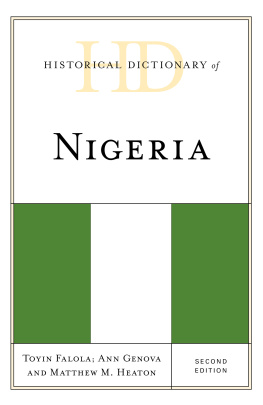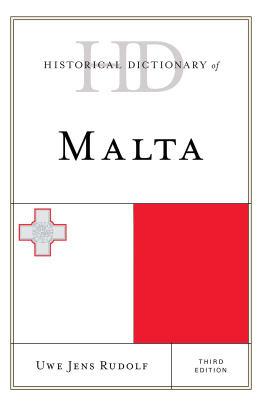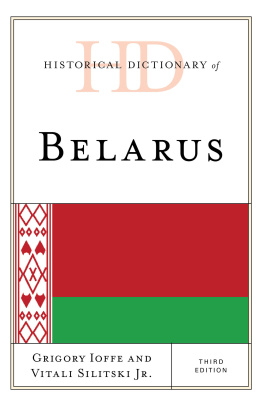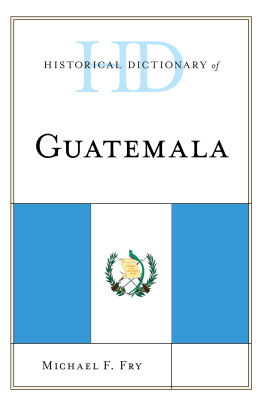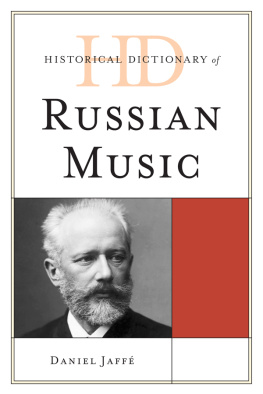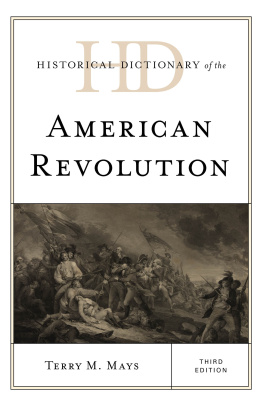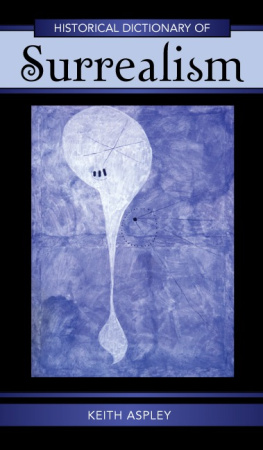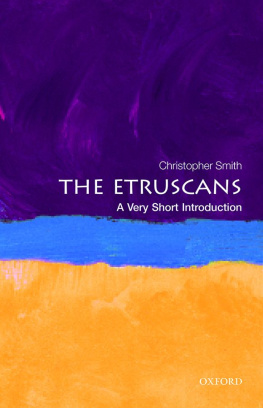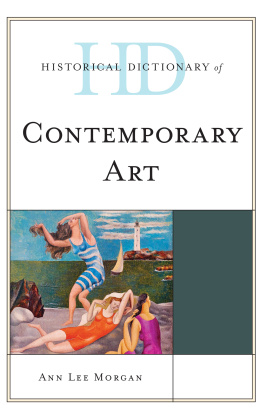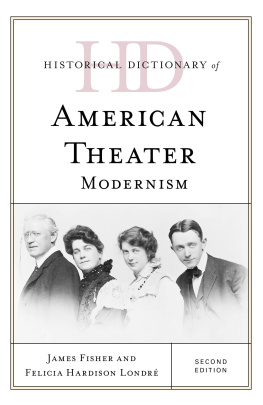Stoddart - Historical Dictionary of the Etruscans
Here you can read online Stoddart - Historical Dictionary of the Etruscans full text of the book (entire story) in english for free. Download pdf and epub, get meaning, cover and reviews about this ebook. year: 2009, publisher: Scarecrow Press Inc., genre: Religion. Description of the work, (preface) as well as reviews are available. Best literature library LitArk.com created for fans of good reading and offers a wide selection of genres:
Romance novel
Science fiction
Adventure
Detective
Science
History
Home and family
Prose
Art
Politics
Computer
Non-fiction
Religion
Business
Children
Humor
Choose a favorite category and find really read worthwhile books. Enjoy immersion in the world of imagination, feel the emotions of the characters or learn something new for yourself, make an fascinating discovery.

Historical Dictionary of the Etruscans: summary, description and annotation
We offer to read an annotation, description, summary or preface (depends on what the author of the book "Historical Dictionary of the Etruscans" wrote himself). If you haven't found the necessary information about the book — write in the comments, we will try to find it.
Stoddart: author's other books
Who wrote Historical Dictionary of the Etruscans? Find out the surname, the name of the author of the book and a list of all author's works by series.
Historical Dictionary of the Etruscans — read online for free the complete book (whole text) full work
Below is the text of the book, divided by pages. System saving the place of the last page read, allows you to conveniently read the book "Historical Dictionary of the Etruscans" online for free, without having to search again every time where you left off. Put a bookmark, and you can go to the page where you finished reading at any time.
Font size:
Interval:
Bookmark:
Ancient Civilizations and Historical Eras
Series Editor: Jon Woronoff
1. Ancient Egypt, by Morris L. Bierbrier, 1999. Out of print. See No. 22.
2. Ancient Mesoamerica, by Joel W. Palka, 2000.
3. Pre-Colonial Africa, by Robert O. Collins, 2001.
4. Byzantium, by John H. Rosser, 2001.
5. Medieval Russia, by Lawrence N. Langer, 2001.
6. Napoleonic Era, by George F. Nafziger, 2001.
7. Ottoman Empire, by Selcuk Aksin Somel, 2003.
8. Mongol World Empire, by Paul D. Buell, 2003.
9. Mesopotamia, by Gwendolyn Leick, 2003.
10. Ancient and Medieval Nubia, by Richard A. Lobban Jr., 2003.
11. The Vikings, by Katherine Holman, 2003.
12. The Renaissance, by Charles G. Nauert, 2004.
13. Ancient Israel, by Niels Peter Lemche, 2004.
14. The Hittites, by Charles Burney, 2004.
15. Early North America, by Cameron B. Wesson, 2005.
16. The Enlightenment, by Harvey Chisick, 2005.
17. Cultural Revolution, by Guo Jian, Yongyi Song, and Yuan Zhou, 2006.
18. Ancient Southeast Asia, by John N. Miksic, 2007.
19. Medieval China, by Victor Cunrui Xiong, 2009.
20. Medieval India, by Iqtidar Alam Khan, 2008.
21. Ancient South America, by Martin Giesso, 2008.
22. Egypt, 2nd ed., by Morris L. Bierbrier, 2008.
23. India, by Kumkum Roy, 2009.
24. The Etruscans, by Simon K. F. Stoddart, 2009.
Simon K. F. Stoddart
Historical Dictionaries of Ancient
Civilizations, No. 24
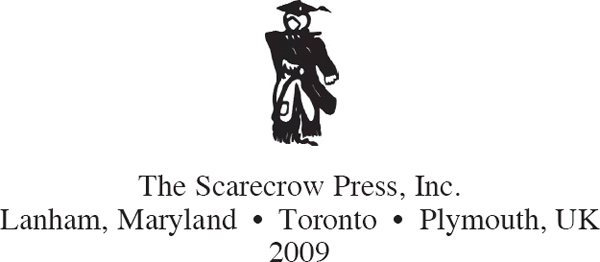
SCARECROW PRESS, INC.
Published in the United States of America
by Scarecrow Press, Inc.
A wholly owned subsidiary of
The Rowman & Littlefield Publishing Group, Inc.
4501 Forbes Boulevard, Suite 200, Lanham, Maryland 20706
www.scarecrowpress.com
Estover Road
Plymouth PL6 7PY
United Kingdom
Copyright 2009 by Simon K. F. Stoddart
All rights reserved. No part of this publication may be reproduced, stored in a retrieval system, or transmitted in any form or by any means, electronic, mechanical, photocopying, recording, or otherwise, without the prior permission of the publisher.
British Library Cataloguing in Publication Information Available
Library of Congress Cataloging-in-Publication Data
Stoddart, Simon K. F., 1958
Historical dictionary of the Etruscans / Simon K. F. Stoddart.
p. cm. (Historical dictionaries of ancient civilizations ; no. 24)
Includes bibliographical references.
ISBN 978-0-8108-5471-0 (cloth : alk. paper) ISBN 978-0-8108-6304-0 (ebook)
1. EtruscansDictionaries. 2. EtruriaAntiquitiesDictionaries. 3. ItalyAntiquitiesDictionaries. I. Title. DG223.S776 2009
937.501dc22
2008053115
 The paper used in this publication meets the minimum requirements of American National Standard for Information SciencesPermanence of Paper for Printed Library Materials, ANSI/NISO Z39.48-1992.
The paper used in this publication meets the minimum requirements of American National Standard for Information SciencesPermanence of Paper for Printed Library Materials, ANSI/NISO Z39.48-1992.
Manufactured in the United States of America.
Jon Woronoff
The Etruscans are among the most fascinating peoples of the ancient world, sufficiently so that they have aroused interest in their contemporaries and successors and encouraged active and dedicated research by amateurs and specialists in Italy and other parts of Europe over the past several centuries. Alas, what we currently know about the Etruscans, as compared to the Greeks, Romans, or Egyptians, is still quite limitedpartly because the civilizations physical remains are relatively few and many have been obscured by their successors. But information is being accumulated, and more is known about specific groups and areas, which contributes to a varied and subtle insight into the community as a whole. This applies to many sectors: architecture, economy, lifestyle, culture, and gender relations. Thus, a volume on the Etruscans is certainly merited and most welcome.
Like the other volumes in this particular series, the first main section is the chronology, which reviews the civilizations long evolution and disappearance. The introduction further locates the Etruscans geographically and describes the workings of their society. The dictionary section contains numerous entries on specific settlements and cities (and their related archeological work), pioneering Etruscologists and their techniques, and Etruscan achievements. The appendix provides a list of museums and exhibits, and the bibliography provides sources for further reading.
With Etruscology being such a diversified and rapidly evolving fieldwith many specialists working in different places, on different aspects, and not always agreeing with one anotherit is certainly important to have an author with a broad view. This has been provided by Simon K. F. Stoddart, whose interest in the Etruscans reaches back more than two decades, when he obtained a doctorate from Cambridge University. Since then, he has been both fellow and lecturer at Cambridge, Oxford, York, and Bristol universities. He has taught and lectured, engaged in or directed a number of fieldwork projects in central Italy, and written or edited several books and numerous articles on Etruscan Italy and related subjects. He was until recently editor of the journal Antiquity. This background explains the unusually broad coverage and exceptional variety of material in this latest addition to the series, the long awaited Historical Dictionary of the Etruscans.
Jon Woronoff
Series Editor
.
.
.
.
.
.
.
.
.
.
.
.
.
.
.
.
.
.
.
.
.
.
.
.
.
This volume deals with a historical people whose preeminent evidence is prehistoric. The dictionary covers Etruria proper between the Arno River and the Tiber River and extensions into the Po Valley and Campania, as well as some of the imported materials of the Etruscans elsewhere outside Etruria. It does not seek to cover Umbria, Latium, or other nearby areas. The dictionary covers places, individuals, and some themes. Only deceased scholars have been given their own personal entries, although some of the key living scholars are mentioned in appropriate parts of the text and in the bibliographic sections at the end of the volume. The principal themes (e.g., geography, identity, and the body) are put into context in the introduction, and these and other themes are covered in the dictionary. Bold items in the introduction and dictionary section indicates a link to specific entries in the dictionary section. Dates are problematic since the recent readjustment of dates in the range 1200700 BC in response to dendrochronological dating has not been universally accepted. An intermediate position is adopted here. In the spelling of Etruscan names, the closest alphabetic version and some of the variations are given. New World spelling is employed where it cannot be avoided by the use of a synonym. Some Italian terms are included and cross-referenced to their English equivalent. The art history and material culture of the Etruscans are voluminous, and the dictionary seeks through the bibliographic section to direct readers to more detailed treatment rather than cover every aspectwhich would be impossible in a book of this length. In some places you might find the terseness of Samuel Johnson, but I hope the dictionary serves its purpose, which is to cover the essentials in a more archaeological and contextual framework than many Etruscan offerings.
Font size:
Interval:
Bookmark:
Similar books «Historical Dictionary of the Etruscans»
Look at similar books to Historical Dictionary of the Etruscans. We have selected literature similar in name and meaning in the hope of providing readers with more options to find new, interesting, not yet read works.
Discussion, reviews of the book Historical Dictionary of the Etruscans and just readers' own opinions. Leave your comments, write what you think about the work, its meaning or the main characters. Specify what exactly you liked and what you didn't like, and why you think so.


